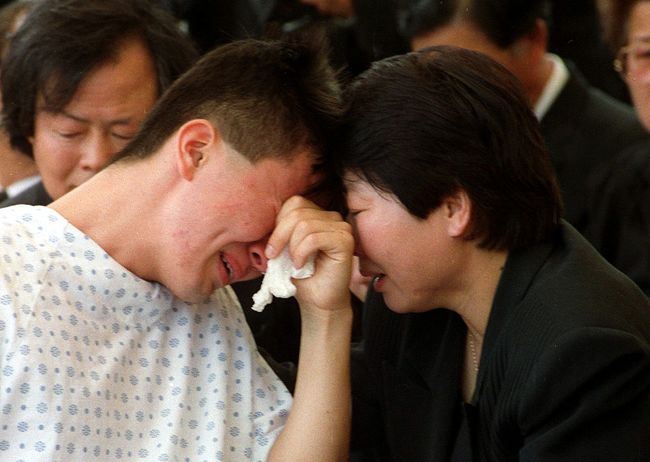
The Los Angeles riots on April 29, 1992 is perceived as the outrage of the black community triggered by Rodney King. The mainstream media invested a significant time on covering the black community’s anger. The 2,300 businesses run by Korean-Americans, which were destroyed and burned, were used as a mere background.
“I explained why I had to hold a gun to protect Koreatown,” said David Joo, one of the business owners on A&E L.A. Burning. “It was edited. It still makes me angry that after 25 years, we’re still only viewed as a subject to the anger when we were the victims.”
There is a growing voice within the Korean-American community. It is to suggest that the Korean-Americans must escape from the thought that they are the reasons behind why the riots occurred 25 years ago. L.A. councilman David Ryu and congressional candidate Robert Ahn said that they will never forget the truth behind what initiated the 1992 civil unrest.
“No one blames the Jews for the Holocaust,” said Byung-soo Kim, 65. “For the last 25 years, we’ve been acting like the assailants towards the black community. Now is the time for us to spread the truth about how much we’ve suffered. The Jews made films, books, newspapers, interviews and documentaries to let the world know about what really happened during the Holocaust, but we’ve openly acknowledged that we were partly at fault.
Our efforts to get along with the black community is a gesture on our end to cooperate with the rest of the society. It’s not because we want to apologize.”
There is no denying that the conflict between the rich and the poor—as well as the one between whites and blacks—is the primary reason behind the riots. It is just that the anger has been taken out on L.A. Koreatown due to geographical convenience.
The younger generation during that time still remembers the riots as a time of pain. They are now starting to voice their opinions about what happened now that they are older. They are now questioning why those in power in the United States did not do enough to protect the Korean community.
As Koreatown was burning, there was not a single firetruck in the neighborhood. What is justice in this country? How much longer should the Korean and Asian American community be left out? Those are just some of the questions that are starting to be asked.
“We can’t let it happen twice,” said Jeffrey Choi, 33.
By Hyoungjae Kim





